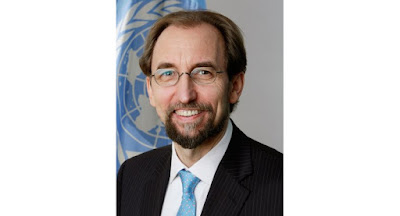Asean chief urges relief for Myanmar's Rohingya
Jeerawat Na Thalang
The Nation
November 18, 2012
Asean Secretary-General Surin Pitsuwan has called on the regional grouping's members to extend humanitarian assistance to Myanmar's Rohingya Muslims after clashes in Rakhine, in the country's west, left many dead or displaced. "If all of us fail, that will create an impression that we don't care. If people feel helpless and think we have to take care of [only] ourselves, the [security] of the Malacca Straits could be at stake," he said, adding that failing to address the problem could lead to "extremism and radicalisation".
The Myanmar government has said the clashes in Rakhine between Muslims and Buddhists, which have reportedly killed more than 80 people and displaced more than 26,000, are a domestic issue. However, Surin said the international community should have a role in "communicating with people under pressure to come up with a strategy and response to relieve suffering, pain and violence".
Surin said Asean could not influence the question of citizenship in Myanmar, as this would need to be tackled by a higher-level institution such as the United Nations. "But what Asean can do is [apply] humanitarian engagement," he said.
Rohingya Muslims are denied citizenship in Myanmar.
The UNHCR has warned that during the calm sea season, more displaced people may seek to flee by boat. The Malacca Straits are the main shipping lane between the Indian and Pacific Oceans.
The expected adoption of the Asean Human Rights Declaration is a highlight of this year's Asean Summit, which started this weekend. Speaking before the summit, Surin said that despite the criticisms of the declaration, it represents the start of an effort by Asean to address human-rights concerns.
"It has to begin somewhere," he said.
Surin acknowledged the difficulties faced by Asean countries on the issue and said he could not pre-judge the results of decisions to be made by Asean leaders.
Critics have said Asean's non-interference principle could make the planned declaration ineffective.
Surin said the rights declaration marks "the least comfortable level, the least level of comfort" among Asean member countries. But he noted that, "I look at the criticism of it. It's not up to universal standards… It's a valid observation, but politics is the art of the possible. The possibility now is what they've come up with, if not perfectly."
On the South China Sea territorial dispute, Surin said, "The failure to issue a joint communique [at the Asean foreign ministers' meeting in Phnom Penh in July] had a big psychological impact on all of us. It's a wake-up call. We tried to recoup and rebalance ourselves, to come together with six points on how to go about [resolving problems] in the South China Sea."
The earlier Asean meeting in Cambodia collapsed over how to deal with the territorial dispute. Surin said that since then, "We have had a flurry of visits…backroom diplomacy has been going on rather actively since July." He added, "There's expectation that China will give some flexibility."
Surin also called for Asean to push forward the Asean Regional Comprehensive Economic Partnership to deepen economic integration in line with the Asean Economic Community, which is due to be launched in 2015.





















































